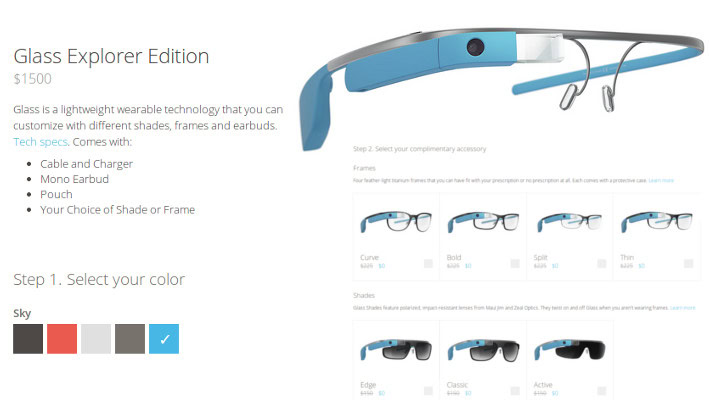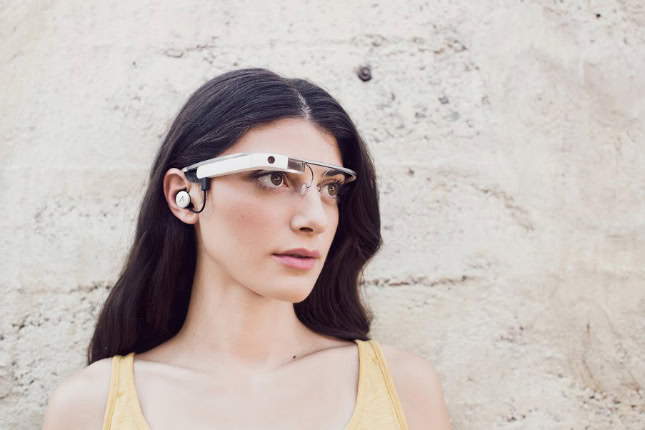Affiliate links on Android Authority may earn us a commission. Learn more.
2nd-gen Google Glass reportedly coming in 2015, may target professional users

Google Glass has truly been getting its Third Eye Blind on. The pricey product was announced at Google I/O back in 2012 and released to “Explorers” in 2013. The tech world was caught in a sea of skepticism and scrutiny about the super spectacles: they cost $1500, they were only available to a few thousand people, and they were a rather obnoxious concept with some potentially serious privacy implications.
As we approach the cusp of another new year, Glass is more-or-less available to any that want it direct from Google, yet it’s still billed as a pre-launch product for all intents and purposes. With talk that even developers are backing away from it, you would be well founded in thinking its ocular days are numbered. And yet… that may not be the case after all.
A new report by The Wall Street Journal claims that Google is working on a sequel to Glass, that will launch next year and will utilize an Intel CPU, as opposed to the Texas Instruments chip in the current version. The newer version will reportedly have longer battery life as well and will be targeted at professional users, such as medical staff.

Let’s break this down, piece by piece:
The release date: Google has yet to officially release Glass. Many have speculated that the pricey tech device was added to the Play Store in an effort to liquidate remaining stock before releasing a new version. The 2nd-gen Google Glass could very well be the official release the tech world was (once) waiting for, though the pricing issue remains a potential problem. If it costs anywhere near what the current Glass retails for, there is almost no chance it will be commercially successful.
The CPU: As TI basically ended its play in the mobile processor arena a few years back (see Google’s reason for terminating OS support for the Galaxy Nexus), going with an established, current CPU manufacturer like Intel is a safe bet. All the more so given that Intel is facing somewhat difficult financial problems and thus the contract with Google will definitely be an asset to its balance sheet.
The Battery: Glass has rather abysmal battery life, with it varying between a few hours (if video is recorded) to roughly one day. By increasing the battery capacity, the device would have a much greater range of use and practicality. For example, if doctors used it to record an extensive surgical procedure, having greatly extended battery life would mean the 6 hour operation could all be captured.
The Market: Clearly someone has come to terms with the limitation of the “geek” market. That is to say, the tech community has all but forgotten about Glass and has moved on to other things, while the courts continue to find new places it can’t be used. The WSJ report indicates that Intel plans to market the device to hospitals and manufacturers, and find new applications for it in the every day workplace. This would definitely go a long way in establishing Glass as a legitimate device, and to some extent, actually provide the product with the main users it arguably should have had from the onset. Something like Glass has so many practical applications in everything from construction to surgery to sports, that it’s almost a mystery as to why Google relegated the thing to hardcore tech enthusiasts. That said, it’s important to note that the report says Google would still make the device available for everyday consumers as well.
While there are a lot of questions on the table about the future of Glass, at least this report, if true, suggests that Google Glass’ days aren’t necessarily numbered and that a brighter, business-oriented future could be in store. What do you think, like the idea of Google Glass a specialized tool for businesses, government and healthcare?